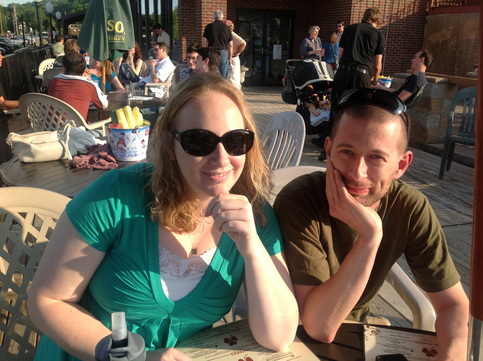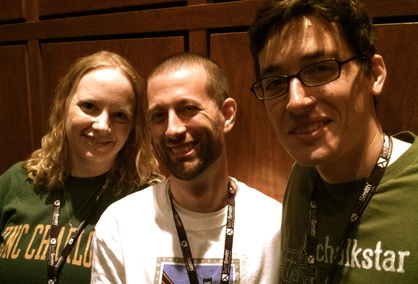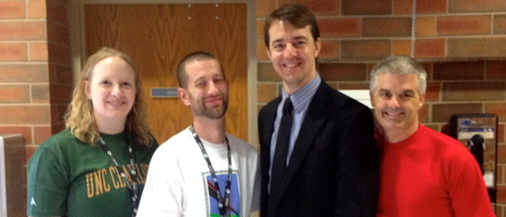It seems like every time I write about the mechanics of our collaborative partnership here on the blog, Andrew and I end up fighting. Not just disagreement fights, where one of us wants to use Batman cartoons, and the other wants to go super arty hipster and use Batman comics...but only in an ironic way.
No, these are Real Fights. I guess when we talk about how awesome it is to work together, all that awesome has to be balanced out by some not-awesome. This fight was about time. We have about a dozen projects in the works, and we've had trouble finding the time to do any of it. Even finding time just to be Friends First was tough the past two weeks. Coming back from FlipCon, where we were used to having as much time together as we wanted, made readjusting to life lived through technology difficult.
Finding time is probably our biggest problem, either in the school year or the summer, although our summer schedules conflict far more than in the school year. Without bells to regulate where we are and at what time in a reliable manner, we have to prioritise differently when we do get time together. There are always more ideas than we have time for. And there are always more projects than we could finish in years of work.
But you know what? That's actually a pretty awesome problem.
We could be sitting there, bored with each other, running on the fumes of what we've already done or trying to reinvent our ideas just a little to make people think they were different. But we have SO MANY NEW IDEAS that we can't possibly use them all. Maybe that's why we like blogging and sharing on Twitter. If we didn't share some of the ideas we have, then no one would ever use them.
So even when we've seen our ideas on other people's blogs, or shared on Twitter, or in presentations or videos, there's something pretty cool about that. Sure, we'd like attribution if the idea was taken from us, but we love that our ideas have a life beyond us.
It's almost like creating more time for our work.
We may not produce work forever, and it's even possible that we might not stay in a collaborative partnership forever. But there have been so many cool things we've done, and even more cool things we've seen other people do with help from us or our ideas, that we think our work will last longer than we will.
And none of the good ideas we've had in the last year could have existed outside of our collaborative partnership. It's the relationship that generates the ideas.
Just like in our classroom, it's the relationship that really matters.
Oh yeah, and we're not fighting any more. When we argue, it tends to burn out quickly and resolve completely within a few hours (or even minutes), assuming we can find time to talk about it. Conflict is just a part of life, and one of the things I'm proud of in our partnership - that we've learned ways to fight humanely, resolve issues completely, and not allow resentment to build. As much as it sucks to fight, we've found that even the fighting is worth it. It helps when you know that no matter what the fight is about, there's no escape hatch. Neither of us is going to play the, "Forget it. This partnership and friendship is too much work and drama. I'm out" card. There's security in that knowledge.
Again, we are really blessed to be working together, even if there are occasional arguments and not nearly enough time for all the awesome we have planned.
There will always be too much awesome to be contained in our CoLab Partnership.
#CoLabProblems





 RSS Feed
RSS Feed
